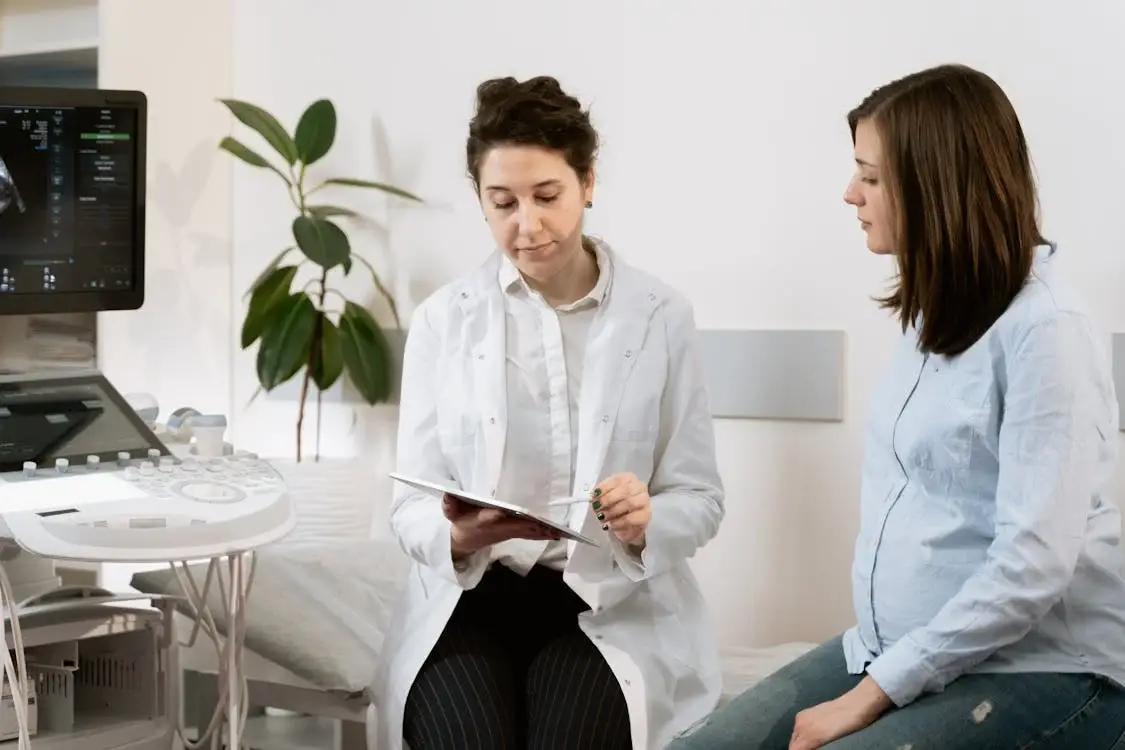Endometriosis is a condition that affects millions of women globally and is often associated with fertility challenges. However, while it can make conception more difficult, it does not make pregnancy impossible. With the right medical care, lifestyle changes, and fertility treatments, many women with endometriosis successfully achieve their dream of parenthood.
In this comprehensive guide, we’ll delve into how endometriosis impacts fertility, the steps you can take to improve your chances of conceiving, and the support options available to you.
What is Endometriosis?
Endometriosis is a chronic condition where tissue similar to the lining of the uterus (endometrium) grows outside the uterine cavity. These growths, often called lesions or implants, are most commonly found on the ovaries, fallopian tubes, and the lining of the pelvis.
These lesions can cause inflammation, scar tissue (adhesions), and even cysts known as endometriomas. The condition is often painful and can significantly impact daily life, including fertility.
Symptoms of Endometriosis
While symptoms vary in severity, common indicators include:
- Painful periods (dysmenorrhea)
- Chronic pelvic pain
- Pain during intercourse (dyspareunia)
- Heavy or irregular menstrual bleeding
- Bowel or bladder issues, such as pain during urination or bowel movements
- Fatigue
- Difficulty conceiving
If you suspect you have endometriosis, it’s essential to consult a healthcare provider for an accurate diagnosis.
How Does Endometriosis Affect Fertility?
Around 30-50% of women with endometriosis may experience infertility. The condition can interfere with conception in several ways:
- Inflammation: Chronic inflammation can alter the environment of the reproductive organs, making it less conducive for fertilisation and implantation.
- Adhesions: Scar tissue can distort pelvic anatomy, affecting the movement of the egg and sperm.
- Ovarian Function: Endometriomas can reduce ovarian reserve (the number and quality of eggs).
- Fallopian Tube Blockage: Lesions can block the fallopian tubes, preventing the egg and sperm from meeting.
It’s important to note that many women with endometriosis conceive naturally, especially if the condition is mild.
Diagnosing Endometriosis and Fertility Issues
Diagnosing endometriosis can be challenging because symptoms often overlap with other conditions. Common diagnostic methods include:
- Pelvic Exam: A doctor may feel for abnormalities like cysts or scars.
- Ultrasound: An imaging test can detect cysts associated with endometriosis, but it may not reveal smaller lesions.
- Laparoscopy: A minimally invasive surgery is the gold standard for diagnosing and treating endometriosis. It allows doctors to see and potentially remove lesions
If you’re trying to conceive, additional fertility evaluations may be recommended, such as ovulation tests or an assessment of your partner’s sperm health.
Tips for Getting Pregnant with Endometriosis
1. Seek Early Support
If you’ve been trying to conceive for six months or longer without success, consider consulting a fertility specialist. Early intervention can help identify potential challenges and provide a roadmap for your fertility journey.
2. Optimise Your Lifestyle
While lifestyle changes won’t cure endometriosis, they can improve your overall health and create a supportive environment for conception:
- Diet: Focus on an anti-inflammatory diet rich in whole foods, such as fruits, vegetables, lean proteins, and healthy fats. Limit processed foods, sugar, and trans fats
- Exercise: Engage in gentle activities like yoga, swimming, or walking to improve blood circulation and reduce stress.
- Stress Management: Chronic stress can negatively affect fertility. Consider relaxation techniques such as mindfulness, meditation, or acupuncture.
Read related article: Lifestyle Choices: Factors that Affect Fertility
3. Understand Your Fertility Window
Track your ovulation to identify your most fertile days. Tools like ovulation predictor kits, basal body temperature charts, and fertility tracking apps can help.
4. Explore Medical Treatments
Depending on your situation, your doctor may recommend one or more of the following:
- Medications: Hormonal treatments like birth control pills or GnRH agonists can help manage endometriosis symptoms, although they are not typically used when trying to conceive.
- Laparoscopic Surgery: Removing endometriosis lesions may improve fertility, especially in moderate to severe cases.
- Fertility Treatments: Options such as ovulation induction, intrauterine insemination (IUI), or in vitro fertilisation (IVF) can significantly enhance your chances of conception.
Endometriosis and Pregnancy
Once pregnant, many women with endometriosis find relief from their symptoms due to the hormonal changes of pregnancy. However, some risks may be higher, including:
- Miscarriage
- Preterm birth
- Placenta previa
Regular prenatal care is essential to monitor and manage any potential complications.
Emotional Support During the Journey
The journey to parenthood with endometriosis can be emotionally challenging. Consider these steps to maintain emotional well-being:
- Join Support Groups: Connecting with others who share similar experiences can provide comfort and understanding.
- Therapy: A mental health professional can help you navigate feelings of frustration, grief, or anxiety.
- Open Communication: Share your feelings with your partner, family, or close friends to foster a supportive environment.
When to Seek Help
If you’re struggling to conceive or suspect endometriosis is affecting your fertility, don’t hesitate to reach out for help. A tailored fertility plan can make all the difference.
At Create Fertility, our team of fertility specialists is here to guide you every step of the way. Whether you’re exploring treatment options or seeking emotional support, we’re committed to helping you achieve your dream of parenthood.
Final Thoughts
Endometriosis may present unique challenges, but it doesn’t have to define your journey to parenthood. By seeking the right care, staying informed, and maintaining hope, you can take meaningful steps toward building your family.
If you’re ready to take the next step, contact Create Fertility today to schedule a consultation. Together, we’ll create a plan that’s as unique as your journey.



